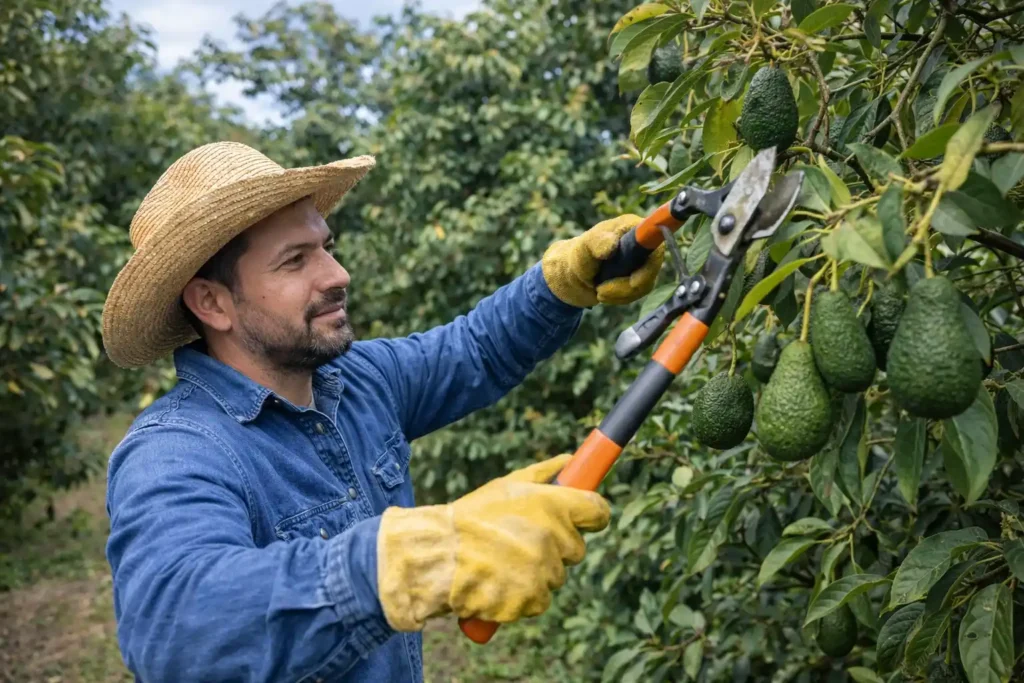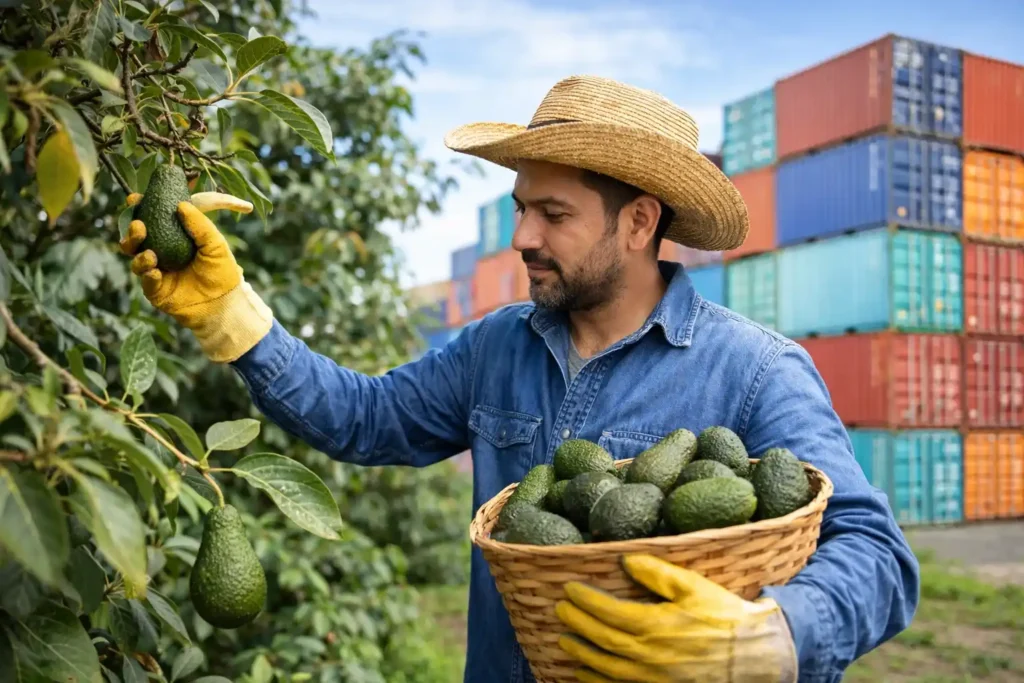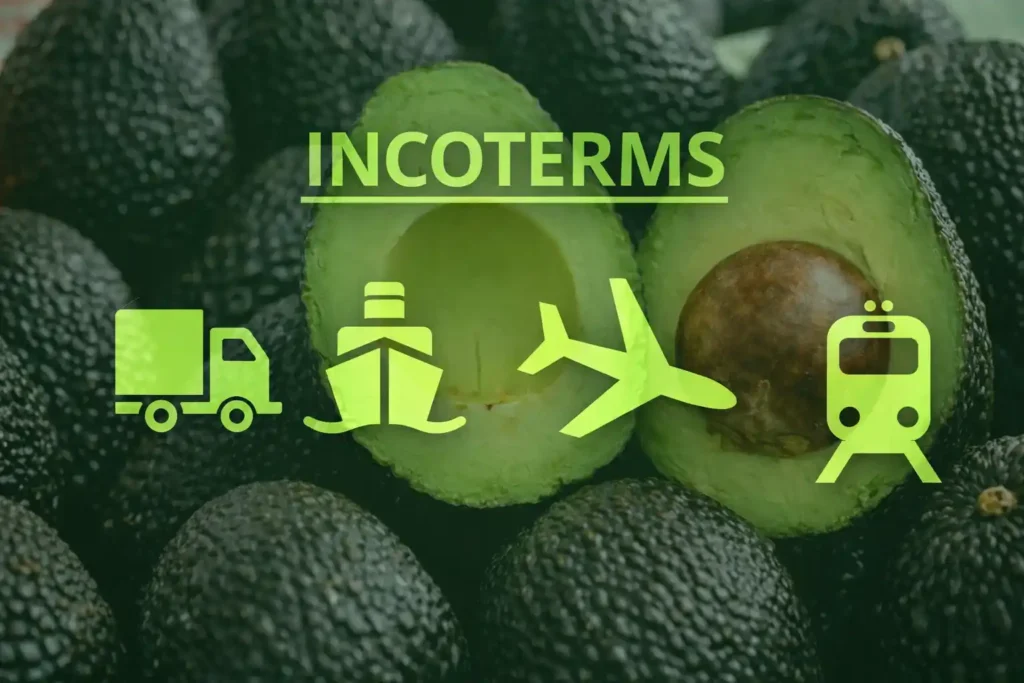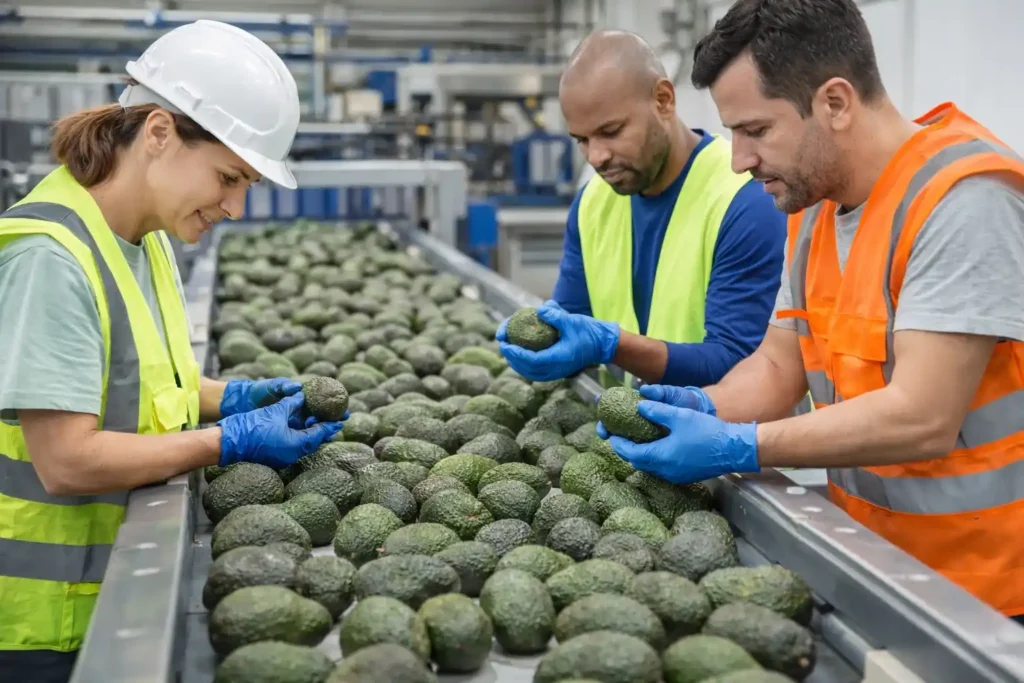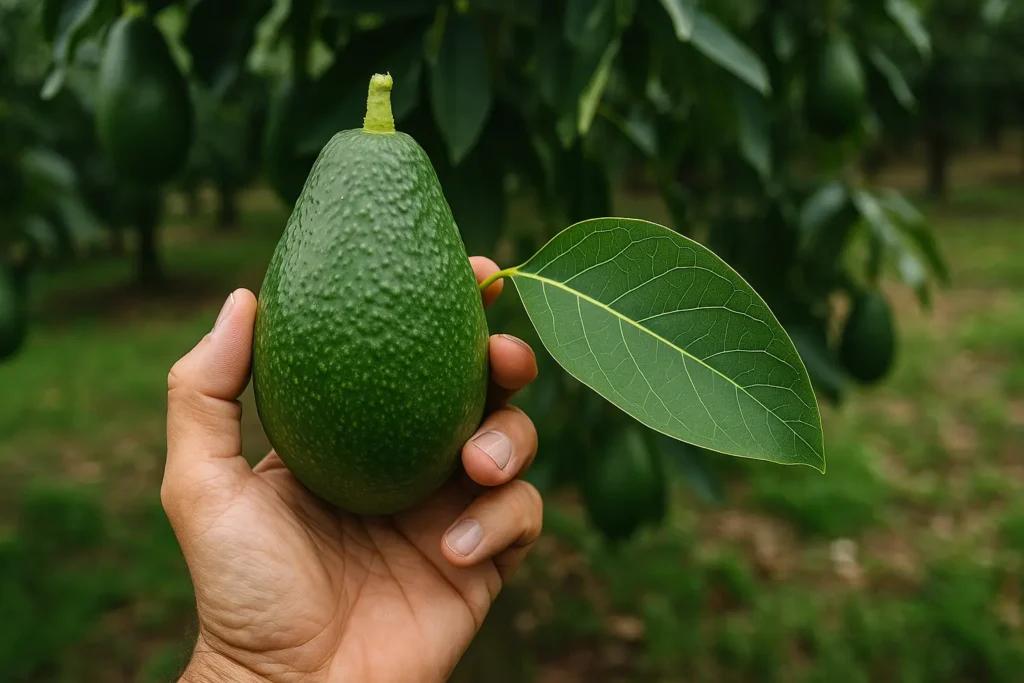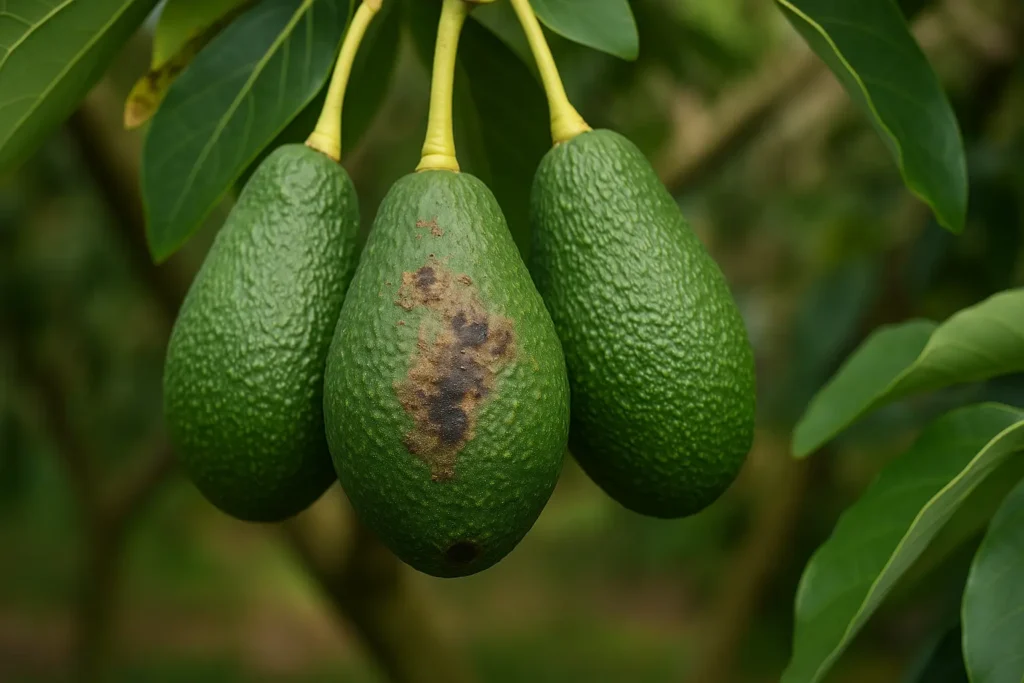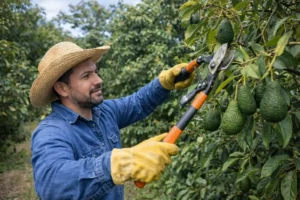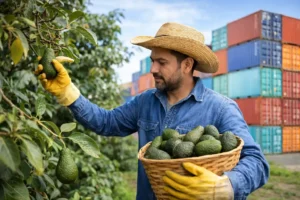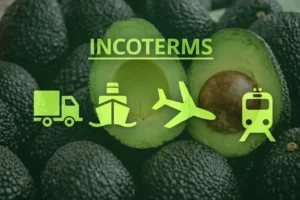The sustainability of Hass avocado crops has become increasingly important for both consumers and agricultural producers. Faced with the environmental, social, and economic challenges facing modern agriculture, adopting sustainable practices is no longer an option, but a necessity.
Producing responsibly is essential to ensuring the well-being of the planet and future generations. Therefore, more and more producers are implementing sustainable principles at every stage of the process, from soil management to final fruit transportation. In this article, you will find the practices and strategies that will help us move toward a more balanced and conscious agriculture.
Sustainable Cultivation Strategies
The sustainability of the Hass avocado crops It is based on a set of agricultural practices that seek to protect the environment, conserve natural resources, and maintain long-term productivity. Below are some strategies widely used in responsible farming systems.
1. Agroecological pest management
Integrated Pest Management (IPM) is a key technique in sustainable agriculture. It is based on constant crop monitoring and the application of biological, physical, and cultural methods to control pest populations, reducing the intensive use of agrochemicals. This practice helps conserve pests' natural enemies, protect the biodiversity of the agricultural environment, and prevent soil and water pollution.
In the case of Hass avocados, identifying the most common pests is essential for implementing sustainable and timely management. For a detailed look at these pests, see our specialized article: What are the pests of Hass avocado?.
2. Efficient use of water
Water is one of the most limited resources in modern agriculture, so its rational use is a priority. One of the most widely adopted strategies is drip irrigation, a system that delivers water directly to the roots of each plant in controlled quantities. This not only optimizes resource use, but also improves crop yield and prevents soil erosion.
The use of water monitoring technologies and rainwater harvesting are also part of the solutions implemented in avocado-producing regions affected by climate variability.
3. Organic farming and composting
Agricultural composting involves transforming organic waste, such as plant remains or decomposed organic matter, into nutrient-rich natural fertilizers. This practice improves soil structure, stimulates microbial life, and reduces the need for synthetic fertilizers. It also contributes to reducing the carbon footprint by reducing emissions associated with the use of industrial chemicals.
Sustainability of Avocado Crops with Fruty Green
Talking about sustainability in avocado cultivation involves considering environmental, social, and economic factors in an integrated way. At Fruty Green, We developed an approach that includes:
- Biodiversity conservation: We protect the ecosystems near our crops through biological corridors and buffer zones that allow the movement of native species.
- Emission reduction: We implement practices that reduce the use of fossil fuels, such as the use of efficient machinery and clean energy in our facilities.
- Community development: We work hand in hand with local communities, promoting decent jobs, technical training, and social well-being.
This commitment is what gives meaning to our work: producing with purpose, caring for every link in the agricultural chain. The sustainability of our avocado crops is a goal that guides our daily decisions and drives us to constantly innovate. Learn more about our environmental and social actions here:
Certifications that Support the Sustainability of Avocado Crops
In the agricultural context, the certifications They play a fundamental role in validating that crops have been produced according to principles of environmental sustainability, social responsibility, and food safety. In the case of avocados, there are widely recognized standards that promote more responsible and transparent production:
GlobalGAP: Good Agricultural Practices
GlobalGAP (Good Agricultural Practices) is one of the most important certifications in modern agriculture. It guarantees that crops are grown following rigorous protocols regarding food safety, traceability, responsible management of inputs, and care for the natural environment. For international markets, it represents a guarantee of quality and compliance.
Rainforest Alliance: Conservation and Sustainable Development
Rainforest Alliance certification promotes the protection of ecosystems, biodiversity, and the well-being of farmworkers. It focuses on balancing productivity with environmental responsibility and encourages the adoption of practices such as rational water use, soil conservation, and climate change mitigation.
ISO 14001: Responsible environmental management
ISO 14001 is an international standard that establishes guidelines for implementing effective environmental management systems. Although not exclusive to the agricultural sector, its application in farms and processing plants allows for controlling ecological impact, improving resource use, and reducing emissions.
Fair Trade: A social and equitable approach
The Fair Trade system guarantees that workers receive fair pay, work in safe conditions, and participate in the development of their communities. In avocado production, this model strengthens social sustainability while generating consumer confidence in the ethical origin of the product.
Quality and Cold Chain: Sustainability in Postharvest
The sustainability of avocado crops goes beyond fieldwork. The post-harvest stage is equally important, as responsible handling of the fruit guarantees its quality, reduces waste, and improves the efficiency of the entire production chain.
Quality control from the source
Applying strict controls from the harvest stage ensures a safe and highly commercially valuable product. Regular inspections and laboratory analysis can detect residues, diseases, or other factors that could compromise quality. This approach also contributes to sustainability by avoiding unnecessary losses.
Efficient cold chain
A Cold chain A well-structured container allows for optimal avocado conditions during storage and transportation. Maintaining controlled temperatures from packaging to the point of sale helps extend the fruit's shelf life and minimize waste, strengthening the sustainability of avocado crops throughout the entire value chain.
Comprehensive traceability
Traceability allows the journey of each batch to be followed from its origin to its final destination. This tool is key to ensuring transparency, responding quickly to any contingency, and building consumer confidence. It also strengthens sustainable production systems by enabling more precise management of quality and logistics processes.
Technological Innovation and Clean Energy
The sustainability of avocado crops is also driven by innovation. The incorporation of new technologies in agriculture allows for the optimization of processes, reduction of resource consumption, and minimization of environmental impact at every stage of the production cycle.
Precision agriculture and digital monitoring
Precision agriculture employs technological tools such as drones, humidity sensors, weather stations, and digital monitoring platforms. These solutions enable informed decisions regarding irrigation, fertilization, and plant health management, improving operational efficiency and reducing unnecessary input use.
Thanks to these technologies, it is possible to achieve more sustainable crop management, adjusting practices according to the specific conditions of each field, which strengthens technical and environmental sustainability.
Integration of renewable energies
The use of clean energy, such as solar photovoltaic systems, has gained importance in the agricultural sector. Installing solar panels on farms, packing plants, or collection centers can reduce dependence on fossil fuels and significantly reduce the carbon footprint.
Incorporating renewable energy sources is a key strategy for moving toward greener production and directly contributing to the sustainability of avocado crops in the medium and long term.
Do you want to promote sustainability in your crops?
At At Fruty Green, we work every day to advance the sustainability of crops Hass avocado Through good agricultural practices, technological innovation, and environmental commitment. If you need advice or are interested in our solutions, we are ready to help you.

